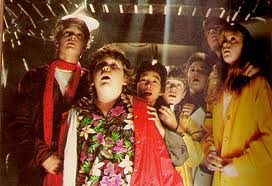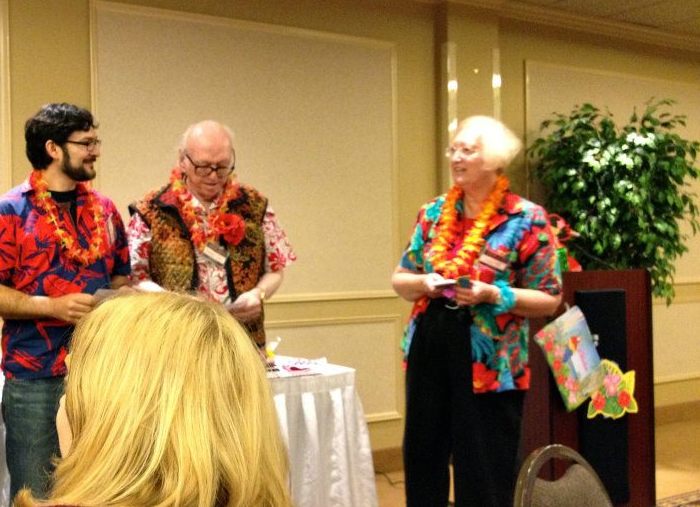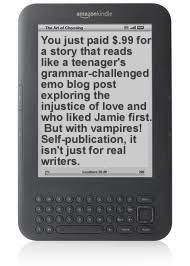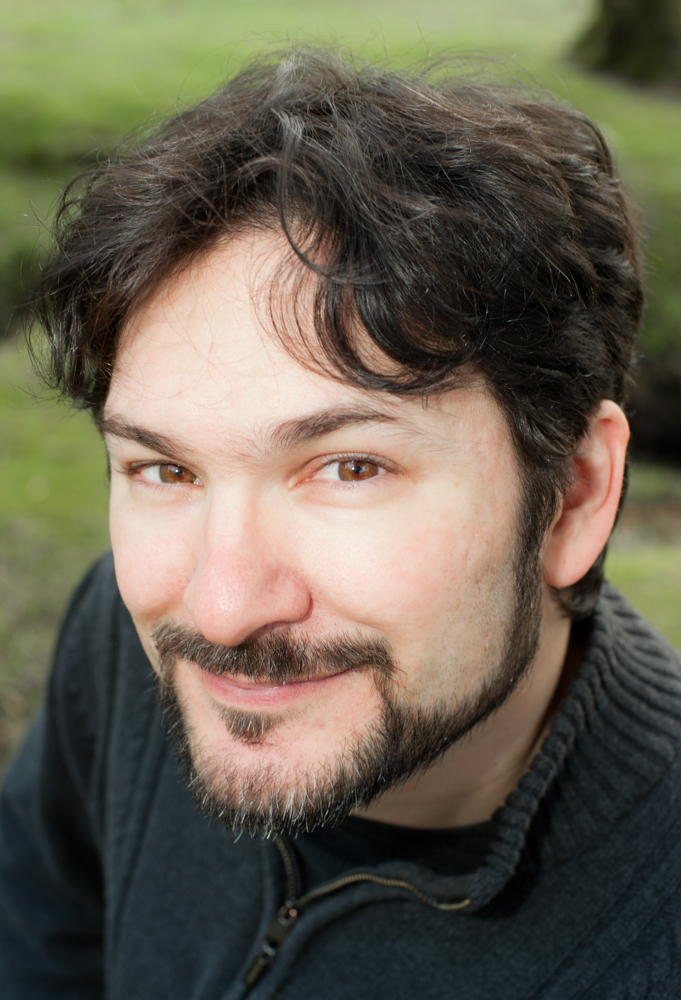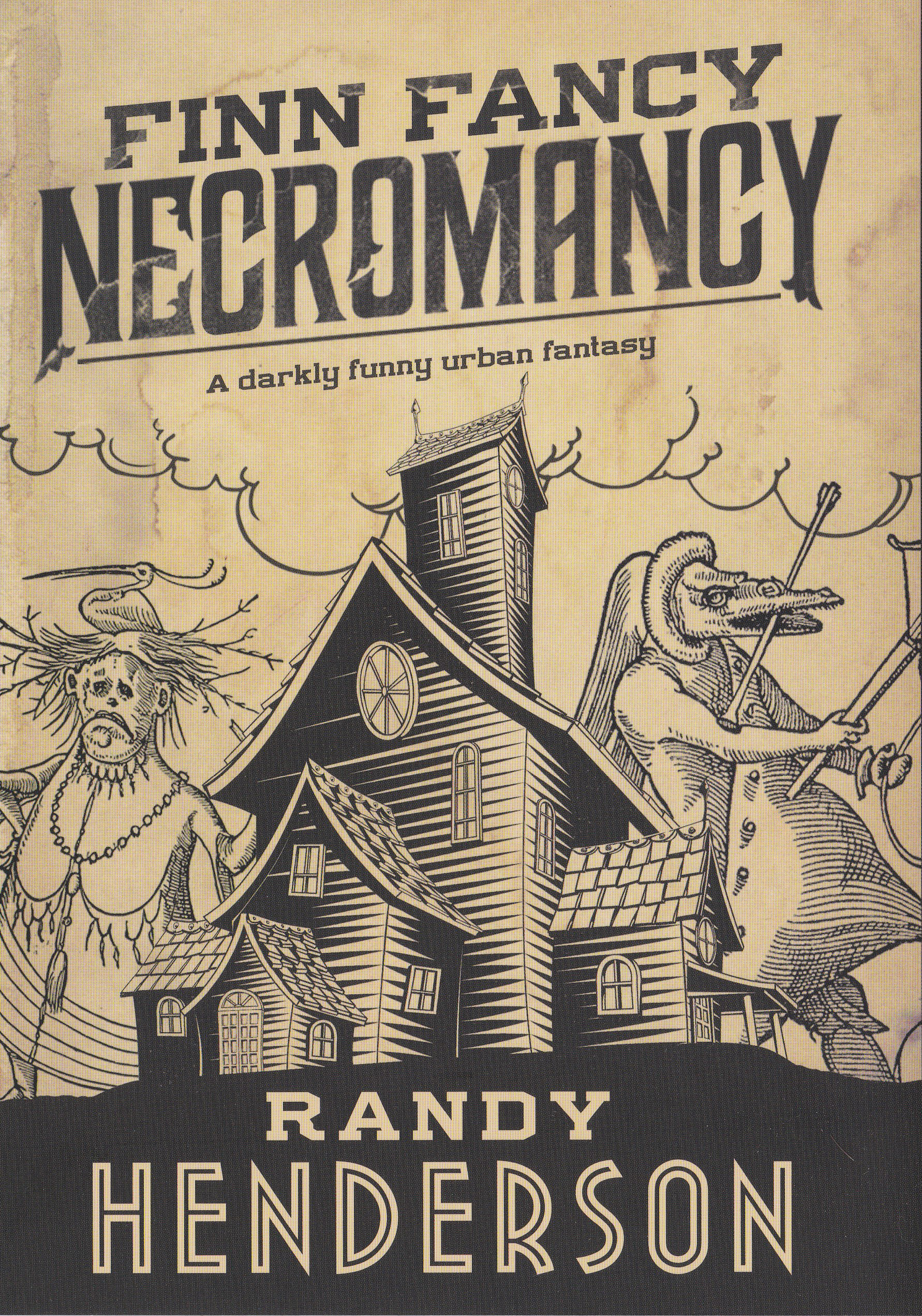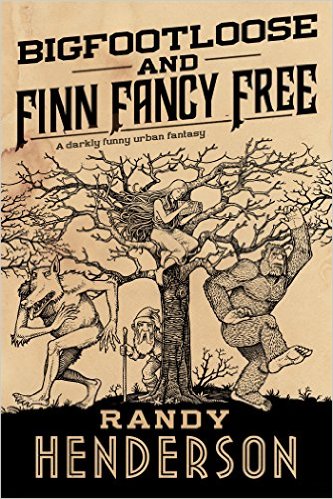Spoke to Neil Gaiman at the party last night, and since I knew that there were plenty of folks who would love the chance to do so, I felt a responsibility to ask him a very important question that I’m sure most of his fans would like answered. So:
Me: “Since the 80’s sound is popular right now, do you think Duran Duran has a good chance for another comeback?”
Neil: “I hope so. I still own the rights to that book, so if they did, I’d have a chance at real success.”
There you go. You’re welcome.
Also, it was awesome to see many online writer friends in person, and of course to hang with all my Clarion West family old and new.
Archive for writing
My Neil Gaiman Chat
Occupy Writing: Art Book Covers

I’m starting Occupy Writing.
First Item: Novels have art on the cover. Why don’t art books have flash fiction on the cover?! UNFAIR!
I’m talking a nice, white cover with black print, featuring an original short story intended to sum up the entirety of the artwork within, yet oddly is always titled something like “Sexy Tattooed Woman with a Weapon Battles Dragon” or similar?
Let’s make this happen folks!
My Clarion West Write-A-Thon 2013 Pitch
I am participating in the Clarion West Write-a-Thon. You must give them your spare change by clicking Donate on my page. Here is why:
1) I have a Procrastination Ray and I’m not afraid to point it at George RR Martin if my demands are not met.
 2) I will send a picture of me shirtless kissing a creepy (and oddly stained) Pee Wee Herman doll to my highest bidder. This is not because I think I’m all that. It is because such blackmail material will only increase in value over time as I achieve fame and fortune, making this a wiser economic investment than stocks or real estate.
2) I will send a picture of me shirtless kissing a creepy (and oddly stained) Pee Wee Herman doll to my highest bidder. This is not because I think I’m all that. It is because such blackmail material will only increase in value over time as I achieve fame and fortune, making this a wiser economic investment than stocks or real estate.
3) For my second-highest bidder, I will name an annoying little dog character after anyone you wish.
4) Oh yeah, and it helps to fund one of the best dang writing workshops out there. Your money will help to launch the careers of future fantasy, scifi and horror writers so that you are not stuck choosing between warmed over Twilight fan fiction or historical figures battling Disney-fied monsters.
http://www.clarionwest.org/writeathon/randyhenderson
My Totally Awesome WorldCon / Chicon 7 Schedule
If you’re going to be at Worldcon 2012/ Chicon 7 in Chicago, I hope you’ll drop by, bask in my radiance and wisdom (or at least the delicious scent of my new shampoo), and share a few laughs with me.
FRIDAY Aug 31:
4:30:pm – 5:00:pm READING: FINN FANCY NECROMANCY PANTS by Randy Henderson
It’s Dresden Files meets Arrested Development with an 80’s flavor. There will be totally awesome 80’s door prizes given away.
In the Dusable room.
SATURDAY
10:30:am- 11:00:am WRITER UNDER GLASS: I’ll be sitting in the Fan Lounge for 30 minutes writing part of a collaborative story as part of an ongoing stunt. Whatever I write will be displayed on a monitor for all to see.
In the Fan Lounge.
3:00:pm- 4:30:pm PANEL: VIVID CHARACTER BUILDING
How do you create vivid characters who pop off the page? How do you avoid archetypes/stereotypes and predictability? Join a panel of writers discussing their techniques and tricks and ask questions of your own.
Bryan Thomas Schmidt Carol Berg Kay Kenyon Randy Henderson Teresa Frohock
In the Columbus CD room.
MONDAY
12:00:pm- 1:30:pm KAFFEEKLATSCHE: EVERYTHING YOU NEED TO KNOW TO BE A PUBLISHED WRITER with Randy Henderson. I’ll be running through my workshop presentation “Evolution of a Writer in Six Stages”, offering exercises, answering questions, and chatting about whatever you want to chat about.
In Kaffeeklatsche 3
Locus Award Weekend
Had a great weekend. Attended the Locus Awards, got to meet William F. Nolan (author of Logan’s Run) and make jokes with the amazing Connie Willis. And yes, I did stroke Nolan’s flocked shirt. Now, fight that urge to insert the obvious joke about being flocked and “lei’d”. I know you can do it.
And of course I got to hang out with many amazing writer friends old and new, as well as meet the Clarion West class of 2012 before their brains turn to mush (for baseline comparison in the coming weeks).
Should You Submit, Quit, or Self-Publish It?
The way to become a published writer is to write (and to submit what you write). Seems obvious, yet so many would-be writers produce that one story or novel and then rework it endlessly, or submit a story or three, get rejected once (or a hundred times), and decide to give up.
Ira Glass does a wonderful job of explaining the reasons we creative types set out to create our particular art, and why so many become disappointed and quit: http://writerunderground.com/2011/04/28/ira-glass-on-creativity-or-the-gap-between-our-taste-and-our-work/
I would add for writers specifically that the writers who are published are the ones who continued to write NEW stories, and submit those stories, and move past the rejections, until they were published.
Of course, today we have a wonderful short cut — self-publication!
I have repeatedly been asked for advice from writers who have written one story, or been rejected a few times, wanting to know how to proceed, how to become published. And sometimes as part of my response I make the mistake of mentioning self-publication as a possible future option.
Don’t get me wrong, self-publication is a very valid alternative IF your writing is worth reading, and IF you believe you have what it takes to stand out from the sea of other self-published works.
But too often, the would be writer latches onto that option as the answer, because the rest of my advice — to write and submit and be rejected until you are good enough to actually be published — requires work, and a lot of rejection, and letting many of your stories die an anonymous and unnoticed death.
And often the amateur writer believes their writing to be perfectly wonderful and worthy of being read. Unfortunately, it is hard to be objective about one’s own work. I certainly see how bad my early stories are now, though at the time I thought they were completely awesome. I would have self-published them if I’d had the option. And now I am so glad I did not, that they were rejected and I was driven to try again, to try harder, to do better.
So please, if you want to be a writer, then write, and submit, and keep doing that until you are good enough that somebody other than yourself and your mother thinks it is ready for the world to read. Persevere, and become a good writer, not just a “wroter” (someone who wrote that one thing and just keeps reworking that same one thing), or a self-published amateur, and someday you will have something published that is worthy of being read.
Totally Awesome Reading and Prizes at Norwescon Friday April 6 at 5pm
Please come check out my reading at Norwescon on
Friday, April 6th at 5pm (Cascade 1 room).
I will be reading from my current novel project, a humorous urban fantasy currently titled “The Family Wizness” — it’s like Dresden Files meets Arrested Development. It is amazingly twice as awesome as it sounds, and at half the calories!
 Because my novel includes a number of 80’s references and jokes, I will also be giving away a bunch of little prizes, bits of genuine, made in the 80’s nostalgia and cheesiness. I’m really happy with the items I managed to find and it will be hard for me to let this stuff go. So I hope you come and join the fun.
Because my novel includes a number of 80’s references and jokes, I will also be giving away a bunch of little prizes, bits of genuine, made in the 80’s nostalgia and cheesiness. I’m really happy with the items I managed to find and it will be hard for me to let this stuff go. So I hope you come and join the fun.
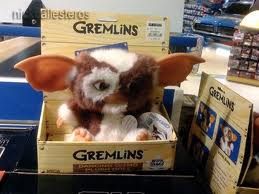
How to Give and Get Good Critique
(I wrote the following for the Cascade Writers Workshop, where it was originally posted)
In 1632, Jebediah P. Milford, Earl of Worster Shire, became famous for eviscerating any poet whose work he found displeasing. Thus began the Milford critique method.
Okay, that’s not true. What is true is that both giving and receiving good critique can be one of the best ways to improve as a writer (other than writing lots of words). I could go into the real history and facts about the Milford workshop, or similar workshops like Clarion West, but you probably don’t care too much about that (and it is easy enough to lookup on the web). What is important, and what you should care very deeply about, is how to get the most out of this critique method for the betterment of your writing, and indeed, the betterment of all humankind.
Writing Stories About Edgy Issues (Or Maybe Bono-y Issues)
I recently answered a question about finding spec fic markets responsive to stories with a “green message”. Here’s my answer, and it applies to stories with any kind of message — political, social, religious, sexual, even a rant against whoever canceled the latest Joss Whedon show.
I suggested two things:
First, you can search for appropriate markets for any spec fic story using http://www.duotrope.com/ or http://www.ralan.com/.
Second, generally speaking, all magazines are open to stories that have a green message (who doesn’t enjoy Kermit’s musings?), with the caveat that what magazines really care about is the story, not the message. You can have the most important message in the world, but if your story is a thinly veiled excuse just to deliver that message, or if you deliver it in a “As you know Bob, all the reefs died due to global warming and pollution.” “That’s right Ed, if only we had done X we would not now have to try to repopulate the oceans to prevent a catastrophic collapse of the food chain” manner, nobody is going to hear your message over their own groans.
But if you tell a gripping and moving story about your character, who just happens to be affected and their world shaped by whatever issue you are concerned with, if you let us experience first-hand the negatives you worry about rather than pointing them out to us, etcetera – in short, if you tell a dramatic story about a character we care about and sneak your message in like a message ninja – then really what you should be looking at is not magazines that support a green (or whatever) message, but rather the magazines that support stories of whatever sub-genre and length yours is.
Moreover, if you focus on magazines that are known for supporting green (or whatever) messages, well, you’ll be preaching to the choir anyway. So really, you should be looking for ways to get your message out to readers who don’t already know and agree with everything you’re likely to be wanting to share.
At least, that’s my experience/ impression/ knowledge bestowed upon me by the aliens who live in my sock drawer/ best advice.
“Surviving the eBookalypse” Live on Escape Pod
![]() My story “Surviving the eBookalypse”, a satire about the future for books and their authors, is now live on Escape Pod: http://escapepod.org/2012/01/19/ep328-surviving-the-ebookalypse/
My story “Surviving the eBookalypse”, a satire about the future for books and their authors, is now live on Escape Pod: http://escapepod.org/2012/01/19/ep328-surviving-the-ebookalypse/
I wrote this story during Clarion West, partly as a response to a doom and gloom speech I heard on the future of the publishing industry. But folks like Mary Robinette Kowal and Cory Doctorow reaffirm my belief that we who create or consume the fiction, we have power to affect the course of things. eBooks are really not so different from paperbacks if we push for the right to truly own what we purchase. Books as objects can return to being lovingly crafted pieces of art, to be collected and displayed proudly in order to impress your date/guests. Er, I mean, to show your love of the written word. And in the end, all of us time-conscious readers will still want someone to filter out the good from the ocean of crap for us and will pay a little extra for that service. Sparkly vampires aside. So I believe the future of the written word remains bright. And if I’m wrong, I will happily accept patronage offers.
Interesting note: the recorded pod cast is actually from an earlier version of the story, and the online text is from the updated version, which I see as a happy accident because A) I went back and forth over the beginning and am still not sure which I like better (though the printed version is tighter), and B) it is a record I think of how my writing (or at least editing) improved over the time between versions. Although the very beginning of the story is the main difference, there are also a number of small differences that demonstrate opportunities to eliminate unneeded words and poor sentence structures. The story synchs up pretty quickly (once Andre enters the library) so if you listen and follow along with the text, you’ll spot the differences.
Thank you to Roberto Suarez for his podcast reading.
Cheers, and I hope you enjoy it.


